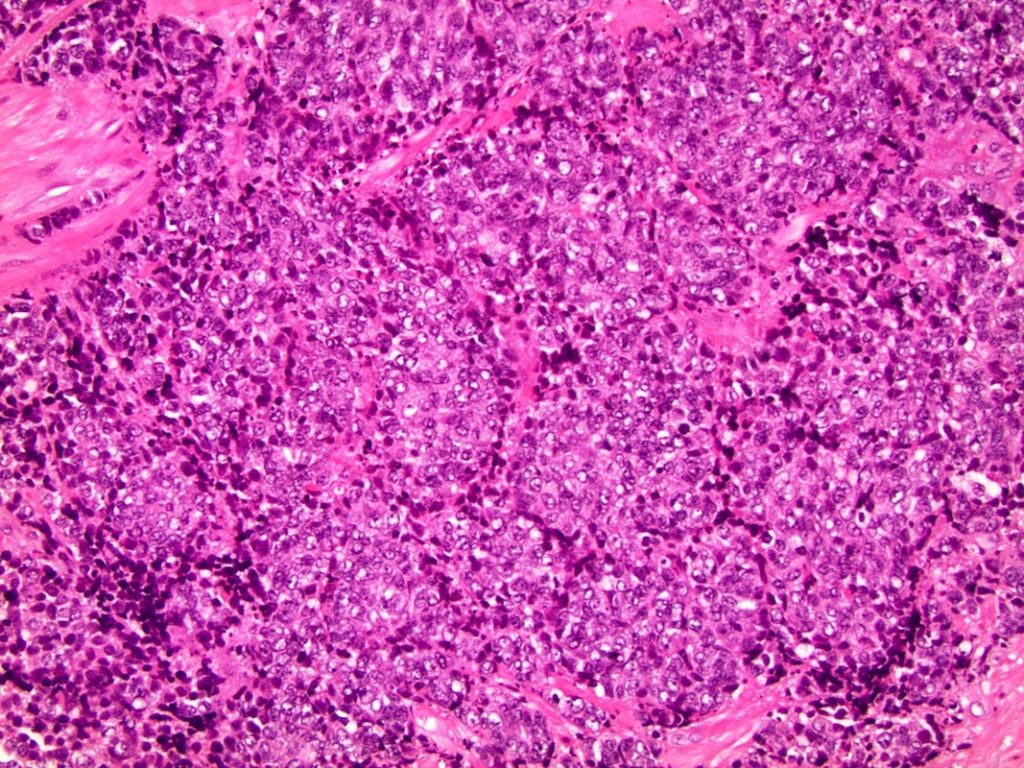The Prostate Is A Small Walnut Shaped Gland Which Sits Under The Bladder In A Man, And Its Main Function Is To Produce Semen. Around 47,000 men are diagnosed with Prostate Cancer each year in the UK and approximately 11,000 will die from the disease every year.
The most common Prostate Cancers are a type called adenocarcinoma and are regulated by the male hormone androgen. Prostate cancer is usually detected using a PSA screening test and confirmed by a biopsy. Small tumours (TI-II) can be monitored without intervention, thus avoiding unnecessary treatment and the associated side effects. Where as, larger tumours will require treatment which may include brachytherapy, radiotherapy, chemotherapy, surgery or hormone therapy.
To grow Prostate Cancer depends on testosterone, so hormone therapy is used to block or lower the amount of testosterone in the body, to try to lower the risk of an early Prostate Cancer coming back when used in combination with other treatments. In some very positive outcomes this treatment results in the shrinking an advanced Prostate Cancer or a slowing in its growth.
Advanced Prostate Cancer
The correct terminology for this type of Prostate Cancer is ‘Advanced adenocarcinoma of the prostate’, and is typically treated with drugs that cut off the supply of the male hormone androgen. Increasingly, however, these cancers are becoming resistant to androgen-blocking treatment and progressing to a more aggressive form of the disease, called Neuroendocrine Prostate Cancer (NEPC).

Neuroendocrine Prostate Cancer does not secrete Prostate Specific Antigen (PSA). It can therefore be hard to identify when Prostate Cancer has progressed to NEPC as PSA levels do not rise.
Because they are aggressive and can’t be picked up by PSA tests, most neuroendocrine prostate cancers are diagnosed only when they have already spread to other parts of the body, most commonly the bones. They can only be diagnosed by biopsy or transurethral resection of the prostate (TURP).
New strategies to identify and treat NEPC
New approaches to identify and treat NEPC are urgently needed, and the Targeted Therapy Group at The University of Surrey are investigating ways to identify and alert clinicians to when a patient’s prostate cancer has progressed to NEPC.
The group is developing a simple blood test which will allow NEPC cells circulating in the blood stream to be detected.
Immunotherapy to treat Prostate Cancer
Another alternative approach being developed, is to use immunotherapy to prime a patient’s immune system to target the NEPC cells. Immunotherapy works by ensuring that any metastatic NEPC deposits are recognised and then destroyed by the body’s immune system.
Our Targeted Therapy Group at the University of Surrey are using their expertise in oncolytic (cancer- killing) viruses to develop a new virus specifically designed to treat prostate cancer. They are one of the few Groups in the UK conducting this type of research.
The aim is to get the oncolytic virus to infect the tumour cells and cause them to pop open and die in a special way, which then stimulates the patient’s immune system to recognise the cancer cell and destroy it.
The Group are working to combine the oncolytic virus with, so called, immune ‘checkpoint inhibitors’, which are already employed in the treatment of some skin and lung cancers. They work by taking the brake off the immune system thereby allowing the immune cells to travel to the site of infection, and destroy the tumour. The immune system will then remember these cancer cells, so should the tumour later metastasise, it will send Toxic T cells to kill the cancer cells.
